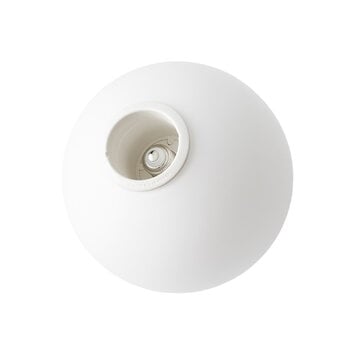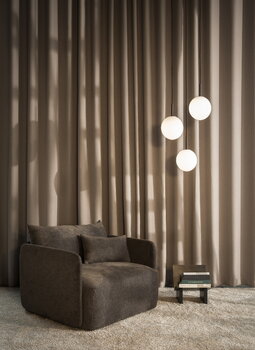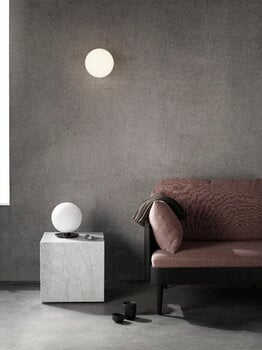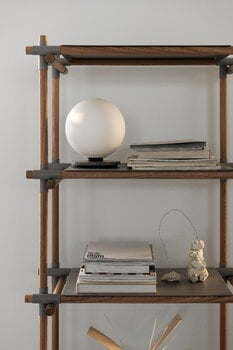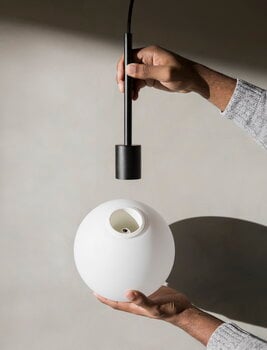Audo Copenhagen’s TR Bulb, designed by Tim Rundle, is the most essential element of Audo Copenhagen’s TR Bulb collection. TR Bulb is both a lamp and a lampshade at the same time: it consists of a round opal glass diffuser with a fixed, dimmable LED unit, providing a smooth white light with no glare. A single TR Bulb can easily be installed to any standard E27 socket, such as a pendant or table lamp, by simply screwing it in.
With their simplistic, light design and easy mounting and portability, the TR Bulb lamps are designed especially for modern, urban living, where people move between cities and countries more often than before.
